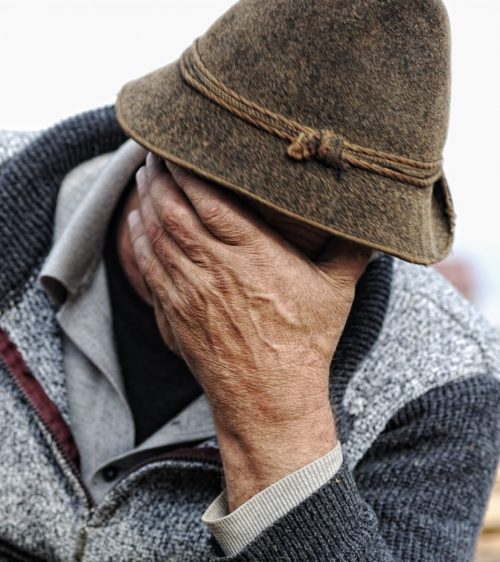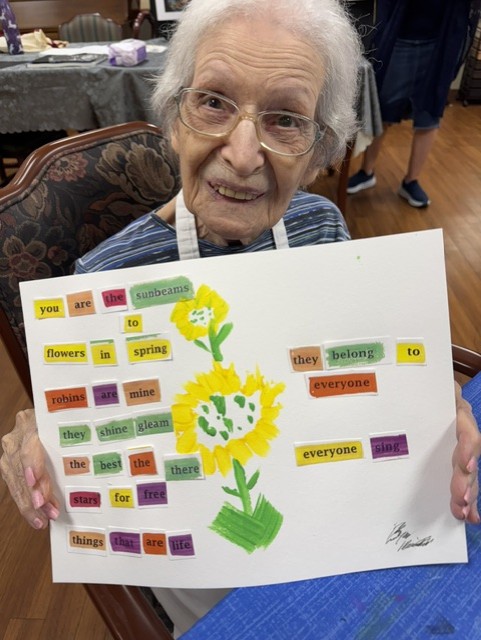“Compassion constitutes a radical form of criticism, for it announces that the hurt is to be taken seriously, that the hurt is not to be accepted as normal and natural but is an abnormal and unacceptable conditions for humanness.”
— Walter Brueggemann, The Prophetic Imagination
A few years ago, we revised our vision, mission and values. During this process, we kicked around about two dozen different words. We had a working group that included two residents from one of our communities. At one point as the staff members tried to parse several values words, one of the residents exclaimed, “What about compassion? That’s why I came here.” Sometimes we do miss the forest for the trees.
What our companion reminded me that day was don’t overlook the obvious. It made me think that compassion isn’t a word we hear much these days. When we do, it can sound trite, idealistic, outdated. Today we hear about efficiency, accountability and government tax policy. Not so much about compassion, especially for those less fortunate to need help with their healthcare, among other essentials of life.
Compassion as Force of Good
But compassion is ultimately a powerful force for good in our world. Indeed, as Old Testament scholar Walter Breuggemann writes in his book The Prophetic Imagination, “Compassion constitutes a radical form of criticism, for it announces that the hurt is to be taken seriously, that the hurt is not to be accepted as normal and natural, but is an abnormal and unacceptable condition for humanness.”
The founders of United Church Homes gave expression to the social disruption of their times in the early years of the 20th century. As industrialization and urbanization changed the social fabric for many, it was the suffering of vulnerable elder people that became the point of concern.
Old challenges, new opportunities
In the frenzied rush toward wealth created in factories, families were being separated, drawn away from traditions and supports that long had kept generations together in communities. So, many communities developed Poor Farms or Poor Houses as they were called back then. Not much compassion there, for many in need of shelter and care. A spartan life, unwanted and outcast. To avoid this, many elders of the day were forced to live with insecurity about housing, food and healthcare. Without families nearby, these people were suffering as an unintended consequence of progress.
So the church stepped in, motivated by Christian compassion, to model the Great Example of Christ, to provide a place of dignity and hospitality, peace and security, faith and worship. The church was compelled to advocacy and action. People of faith had their imaginations fired up by the prophetic call to usher in the Realm of God to correct the powers and principalities of this world.
Supporting ‘the least of these’
Today the church also criticizes the threats to our elders from a society absorbed by signs of greed. In the name of efficiency, the supports for Medicaid, Medicare and affordable housing were all under attack in 2017. Congress made several concerted attempts to reduce key programs for the elderly and poor. Only the collective voices of compassion managed to turn away the powerful from this course throughout the year.
For the better part of 2017, Congress tried to undue various social safety net programs, most tied to the Affordable Care Act. We enlisted many of our supporters to try to influence these debates in Congress. Many times, we turned to the values of our faith, particularly compassion, to give us energy and action for this struggle.
Until Congress passed the Tax Reform Act of 2018, we thought perhaps compassion had won the day. But the tax cuts for the top earners combined with expanded defense spending create a new scenario of ever increasing deficits. No sooner had the ink dried on this measure than Congressional leaders announced it would turn its attention to Medicare, Medicaid and Social Security in 2018 for new “reforms,” which is code for reductions.
Advocacy in a new century of service
Christian compassion calls us to stand with those who hurt and against those who do the hurting.
Public policy seems to labor under the delusion that anyone needing assistance should otherwise be working. While the makers of war materiel and border walls command greater shares of this country’s resources, while the rich reap greater wealth, the poor are sent empty away. This is unacceptable!
So, it seems this will be another year of compassion-based social criticism. We will need every voice who believes as we do that the cries of the poor will not be accepted as part of the norm. If you’d like to be part of our public advocacy network, please contact Rev. Beth Long-Higgins, executive director of United Church Homes’ Ruth Frost Parker Center for Abundant Aging. We will keep you apprised of our ongoing efforts to put compassion into action. Of course, that’s one of our main values.
View all articles by:






















